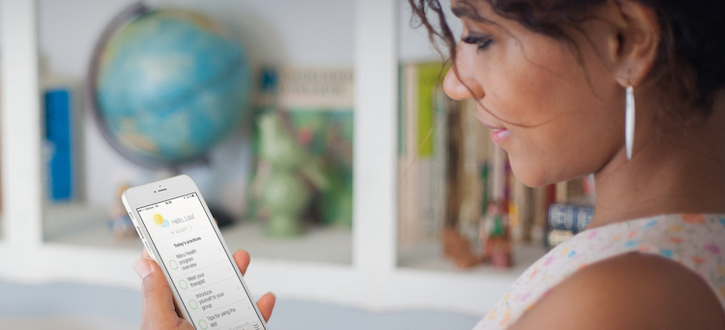Meru Health Secures $4.2M for mHealth Digital Therapeutic
The clinician-supported phone-based digital therapeutic program is for people with depression and anxiety.

Photo has been modified. Courtesy of Meru Health.
Meru Health, a digital health clinic for greater mental health, today announced a $4.2 million series seed funding for its licensed and clinician-supported phone-based digital therapeutic program for depression and anxiety.
Financing came from Freestyle Capital, Bonit Capital, Y Combinator, Lifeline Ventures and IT-Farm and will be used to support clinical validation and preparation of the program for a larger scale rollout to health systems across the U.S.
Meru Health conducted a clinical trial to test the efficacy of its digital health program.
In the trial, 117 adults with elevated depressive symptoms were enrolled in Meru Health’s program called Ascend. Ascend included daily cognitive behavioral therapy and mindfulness meditation exercises delivered through the mobile app.
The program also allowed users to participate in an anonymous group chat with other users and chat/phone access to a licensed therapist.
Ascend delivered eight weekly themes: introduction to mindfulness, low mood and motivation, self-compassion, managing worry, overcoming thinking traps, rethinking your life values, being aware of your relationships and relapse prevention.
The participants were able to reach out to their therapist whenever they wanted, but more than 50% of the communication was initiated by the therapist. The therapist usually checked in via chat at least two to three times per week to see how the patient was doing. On average, the therapist spent 20 minutes on each patient per week.
Levels and symptoms of depression were measured at baseline, every second week during the intervention, immediately after the intervention and at four weeks after completion of the intervention.
More daily practice and group chat use predicted the occurrence of fewer depressive symptoms at four weeks postintervention.
Researchers also found that there was a significant reduction in depression symptoms as well as a near 80% completion rate of the program.
The clinical trial results were published in the Journal of Medical Internet Research on Jan. 1, 2019.
Another clinical trial of the program with Stanford University School of Medicine and the Veteran’s Administration is currently underway.
“Digital mental health interventions may help people with depression and other mental health conditions get treatment more easily,” said Christine Gould, Ph.D., instructor at Stanford University School of Medicine.
Get the best insights in digital health directly to your inbox.
Related
How Health Tech Affects Cancer Patients in Minority Populations
Podcast: Adoption of Healthcare Tech in the Age of COVID-19 with Dr Kaveh Safavi
June 22nd 2021Kaveh Safavi, MD, JD, global health lead of Accenture Health, discusses how the pandemic influenced the speed at which healthcare organizations adopted new technologies and how this adoption is impacting patient care.














